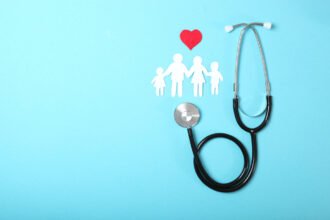Healthcare is one of the most dangerous fields to work in. In 2010, more than 653,000 healthcare employees reported workplace illness or injury. The next year, the incident rate of injuries requiring time off was four times the average for all workers.
Despite the variety of risks healthcare facilities present to workers, OSHA carries out relatively few safety inspections. According to experts, even when inspectors discover an issue, the organization typically can’t do anything due to the lack of needed safety standards.
Ultimately, your health and safety are in your hands. If you want to protect yourself and avoid an injury in the workplace, follow the 10 prevention tips below.
1. Handle Sharps Safely
Pokes from used sharps — like needles, syringes, lancets, etc. — can spread infections like hepatitis and HIV. Healthcare facilities should always have guidelines in place for how to handle sharps. Leak-proof and puncture-resistant containers are crucial. After using a needle, replace the cap before disposal. When possible, use alternatives like needle-free IV systems. Nurses should also avoid tossing sharps into overflowing containers, which can cause spills.
2. Avoid Chemical Contact
Take precautions when exposing yourself to toxins and chemical agents. Healthcare workers are at risk of exposure when treating patients with anesthetic gases and aerosolized medications. Chemicals also play a role in disinfecting and sterilizing work surfaces. Employers should educate staff on how to assess hazards and safely decontaminate spill areas.
3. Immunize Against Disease
Healthcare workers come in contact with some of society’s sickest people. It’s vital to protect yourself against contagious disease. Vaccines reduce your chance of contracting and spreading illness — including to those around you, such as family and friends. Healthcare employees, from physicians to administrative staff, should get immunized for hepatitis B, MMR, varicella, Tdap, meningococcal meningitis and flu.
4. Avoid Slips and Trips
You should clean up spills immediately to prevent falls. If you can’t clean the area right away — or if the mop leaves behind a slick spot — put up a wet floor sign to warn patients and co-workers. All hallways and walkways should be free of clutter and tripping hazards, including cables, cords and filing cabinet drawers. Healthcare organizations should install floor mats for added traction and encourage workers to wear comfortable, slip-resistant shoes.
5. Use Lift Equipment
If you work in healthcare, you likely do a lot of walking, bending and lifting. As the largest joints in our body, the knees take the brunt of our daily tasks. While a knee injury may seem like no big deal, it can lead to a lot of complications. Workers should use the proper equipment when lifting to avoid a torn ligament or meniscus. Even a minor injury, such as swelling or bruising, can put you off your feet for several days.
6. Learn About Ergonomics
If you regularly lift or move patients, you are at risk of work-related musculoskeletal disorders. Ergonomics, the practice of adjusting product design to meet job demands, could be the answer. For example, an administrative employee may require an ergonomic chair, mouse, and keyboard to prevent arthritis and back pain. With ergonomics, workers can improve productivity while reducing illness and injury.
7. Wash Hands Regularly
In the U.S., hospital infections affect 2 million people each year, and approximately 100,000 die. According to experts, 70% of these infections are preventable — if healthcare workers follow protocols, such as proper hand hygiene before and after touching a patient. Beyond following protocols, workers can rally healthcare facilities to install sinks and sanitizer dispensers in more convenient locations. Companies should also ensure soap and hand sanitizer are available at all times.
8. Wear Required PPE
Many healthcare workers wear PPE, or personal protective equipment, to protect against disease, injury and infection. Organizations should adequately train employees on the selection of PPE available and how to safely don and remove it. Some of the most common types of equipment used in healthcare include gloves, gowns, masks, respirators, goggles and face shields.
9. Get Plenty of Sleep
There’s a critical link between getting a night of quality sleep and patient safety. Sleep deprivation can impair cognitive functions like mood, response time and initiative. Chronic fatigue can also lead to burnout. One study of residents determined medical and diagnostic issues were significantly more common in those working traditional shifts longer than 24 hours. Health centers need to limit the number of hours employees work per shift. On the flip side, workers can mitigate fatigue with sleep scheduling and daytime napping.
10. Practice Self-Care
As a healthcare professional, you care for patients all day — it’s crucial to take time for yourself. Self-care is any activity or hobby that improves your sense of well-being. For some, it could mean 15 minutes of daily meditation. For others, it might be a jog around the block or a soak in the tub. Many also find it therapeutic to write reflectively about their experiences.
Conclusion
If you work in the healthcare industry, you come into contact with many sick and needy people. You must care for them to the best of your ability. Still, don’t neglect your needs. Follow the tips above, from immunizing against disease to wearing proper PPE, to prevent workplace injuries and stay safe.










